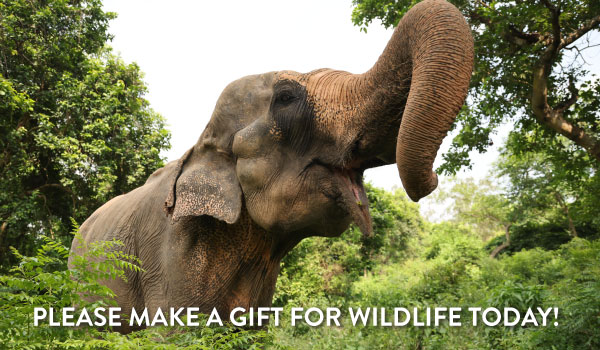Human-Wildlife Conflict Mitigation
Wildlife SOS has run the only 24-hour animal rescue hotline in the National Capital Region (NCR), in Agra, Uttar Pradesh, in Vadodara, Gujarat and in Jammu & Kashmir. The Police Control Room, administration department and forest department of the respective regions know that they can count on Wildlife SOS to respond efficiently and safely to calls for help and so they also divert any wildlife rescue calls they receive to our team in these respective cities.
Wildlife SOS addresses 300 reptile rescue calls every month. Our rescue team includes experienced snake handlers who are equipped with snake hooks and boxes to ensure that every reptile is rescued in the most efficient and professional manner, ensuring minimal stress to the animal and the people involved.
Sometimes, snakes are rescued from abusive conditions. Most of these snakes are illegally captured by snake charmers and are routinely exploited to extort money from people. Some rescued snakes like cobras have badly infected mouths due to unsanitary and inhumane fang and venom gland removal procedures. Non-venomous snakes such as Indian rat snakes, sand boas and even Indian rock pythons end up facing a similar fate; their mouths are stitched up to avoid any mishap while being handled.
If you are visiting India as a tourist, please avoid giving alms and encouraging snake charmers from using snakes for display and entertainment, as this is an act of cruelty towards animals and promotes the illegal possession of protected wildlife species. Snake charming is illegal in India and is a punishable offence under Indian laws.
Be it a cobra in a toilet, a monitor lizard that has accidentally strayed into a school, a peafowl poisoned by pesticide, a deer or antelope loose on a golf course or at the airport, our well trained team endeavours to safely rescue these animals, birds or reptiles from high risk situations.
When a rescued reptile is brought to our wildlife transit facility for physical examination and if the reptile’s health is compromised, necessary veterinary care and treatment are provided. Thereafter arrangements are made and proper permissions are acquired from the concerned authorities to release the animal into a suitable habitat. The release is done in the presence of representatives of the forest/wildlife department.
Objective: To provide assistance and dedicated medical care to urban wildlife that often finds itself in the throes of conflict, or falls prey to accidents.
Scope: Increasing the reach of our helpline from Delhi, Agra and Gujarat; establishing dedicated teams for answering calls and tending to rescues, as and when necessary.
Location/Region: Delhi NCR, Agra (Uttar Pradesh), Vadodara (Gujarat) and Jammu & Kashmir
Milestones:
- Wildlife SOS addresses 300 reptile rescue calls every month.
- Wildlife SOS runs 24-hour wildlife rescue helplines across two states and two Union Territories in India.
- In Delhi and the National Capital Region (+91 – 9871963535)
- In the Agra region of Uttar Pradesh (+91 – 9917109666)
- In the Vadodara region of Gujarat (+91 – 9825011117)
- In Jammu & Kashmir (+91 – 7006692300, +91 – 9419778280)
- Delhi NCR helpline handles an average of 30 calls a day.
Timeline:
1999 – Creation of emergency helpline in Delhi NCR.
2002 – Creation of emergency helpline in Agra, Uttar Pradesh.
2010 – Creation of emergency helpline in Vadodara, Gujarat in association with Gujarat Society for Prevention of Cruelty to Animals (GSPCA).
2021 – Creation of emergency helpline in Jammu & Kashmir.
Project needs: Obtaining more rescue vehicles, snake rescue equipment, transportation cages, safety gear for the rescue teams.
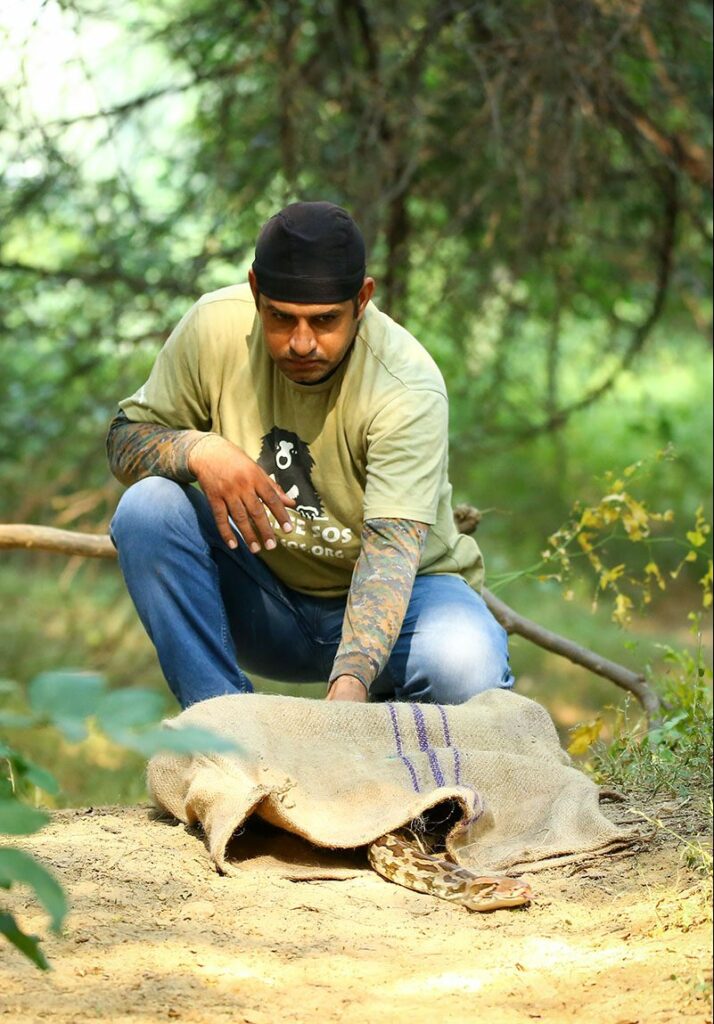
Other Projects
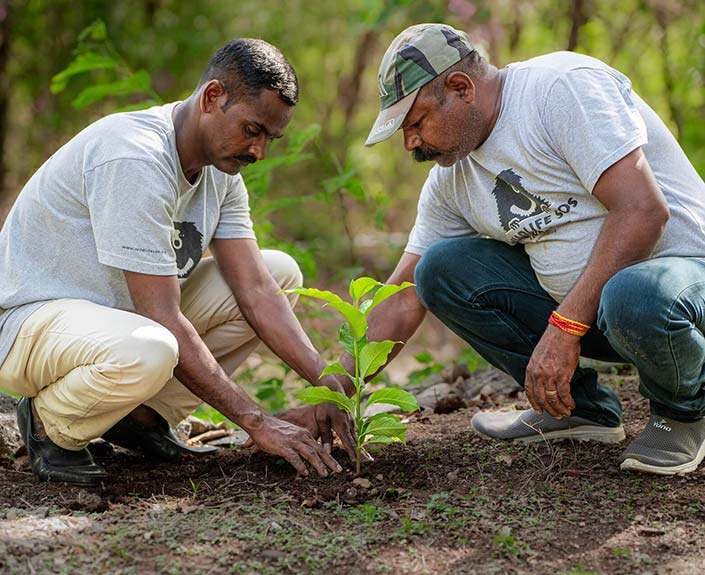
Restoring Habitats for an Equitable Future
Wildlife SOS has initiated the 'Rewild for Wildlife' project to plant native trees.
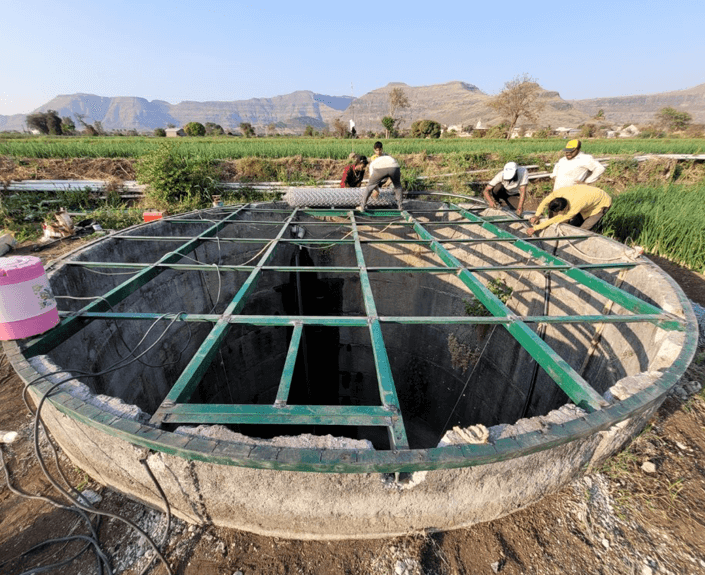
Open Wells Conservation Project
Covering up open wells of Maharashtra to prevent animals (especially leopards) from falling in.
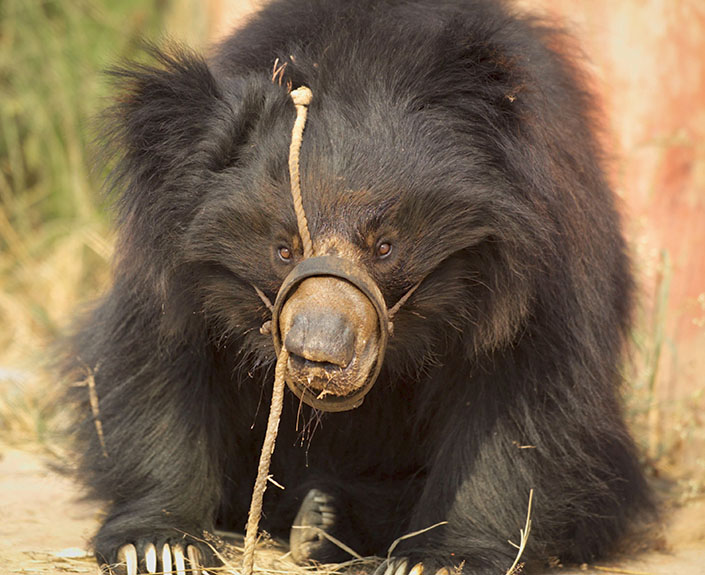
'Dancing' Bear Project
Eradication of the barbaric 400-year-old 'dancing' bear practice in India and provide lifelong care to the bears we rescue.
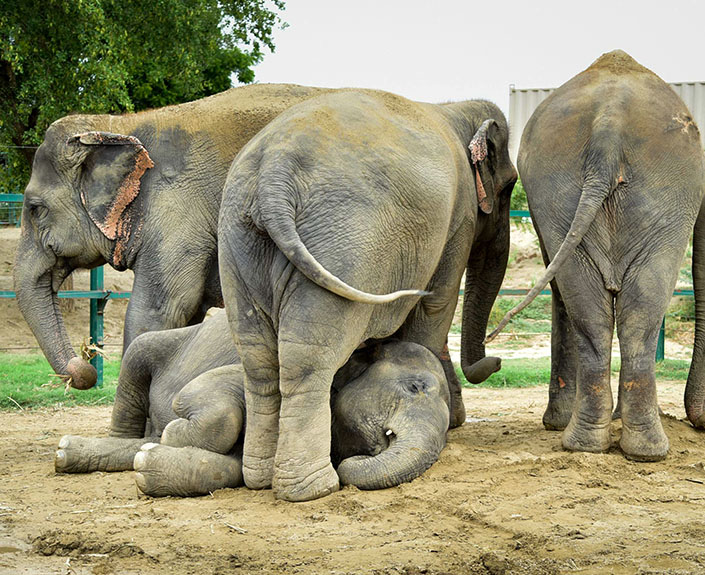
Elephant Conservation & Care
Rescuing and rehabilitating captive elephants from abusive conditions and providing lifelong care in their healing journey.
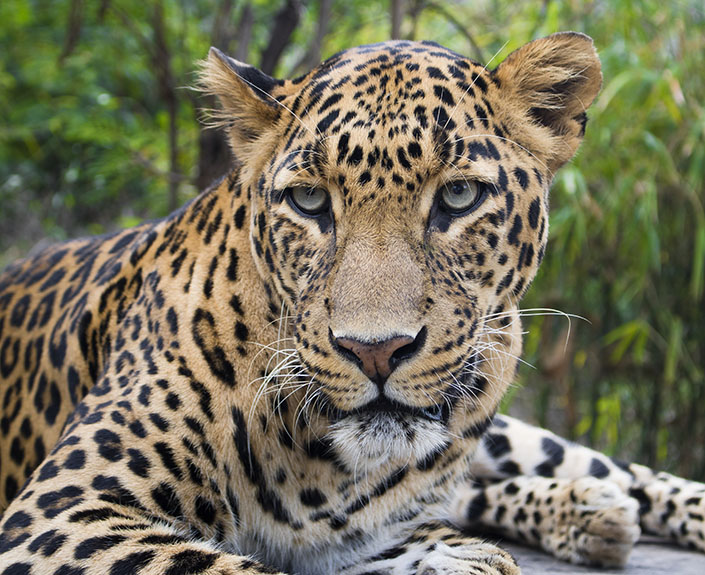
Leopard Conservation
Working towards mitigation of human-leopard conflict, and rescuing orphaned and injured leopards for lifetime care.
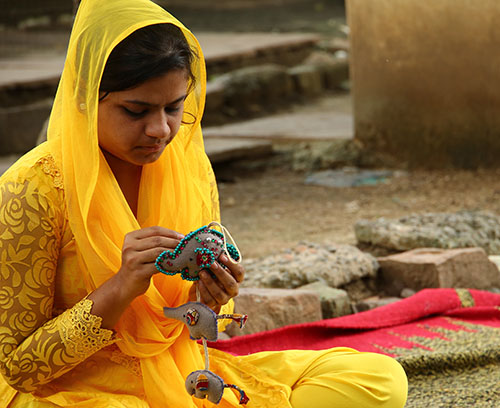
Tribal Rehabilitation Programme
Enable the indigenous communities to have alternative sustainable livelihoods after giving up their bears.
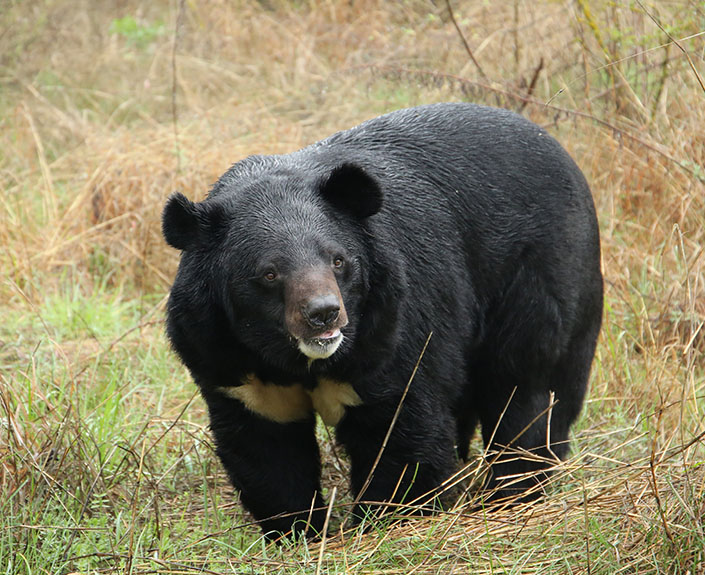
Human-Bear Conflict Mitigation
Protect and provide medical aid to bears in India vulnerable to conflict, poaching and other threats.
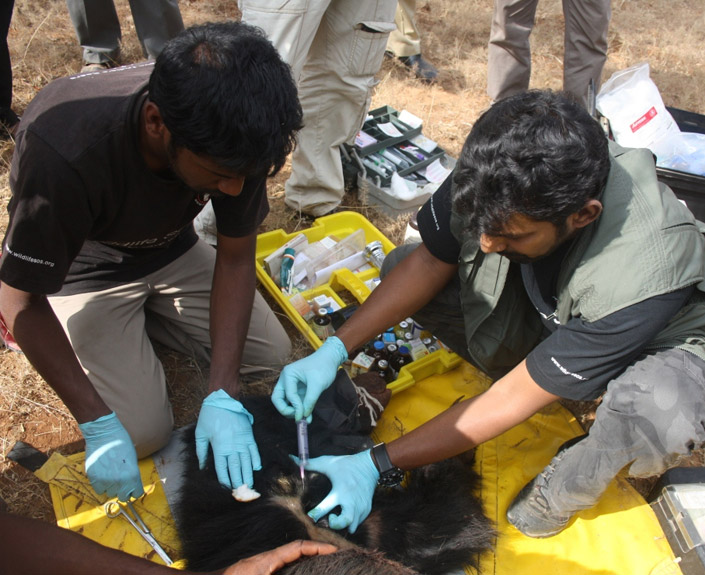
Human-Wildlife Conflict Mitigation
Provide hotlines for the rescue, assistance and dedicated medical care to injured or displaced wildlife.
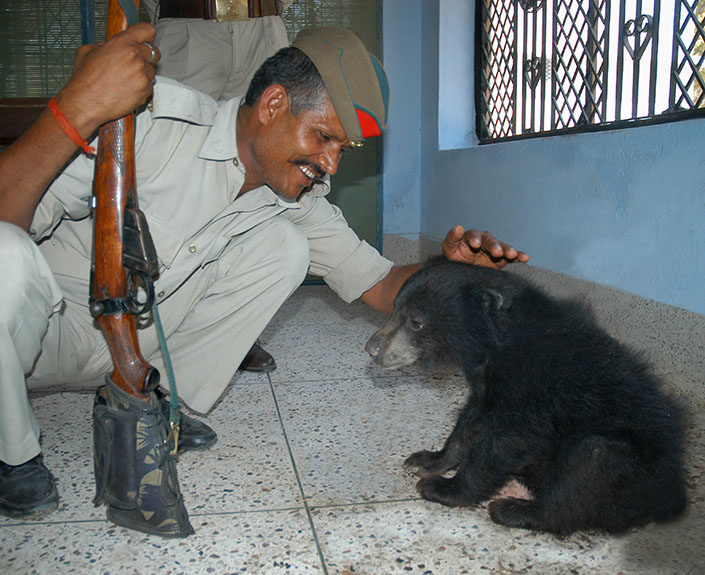
Anti-Poaching
The 'Forest Watch' programme assists the forest department and law enforcement to crack down on wildlife traffickers, poachers and smugglers.
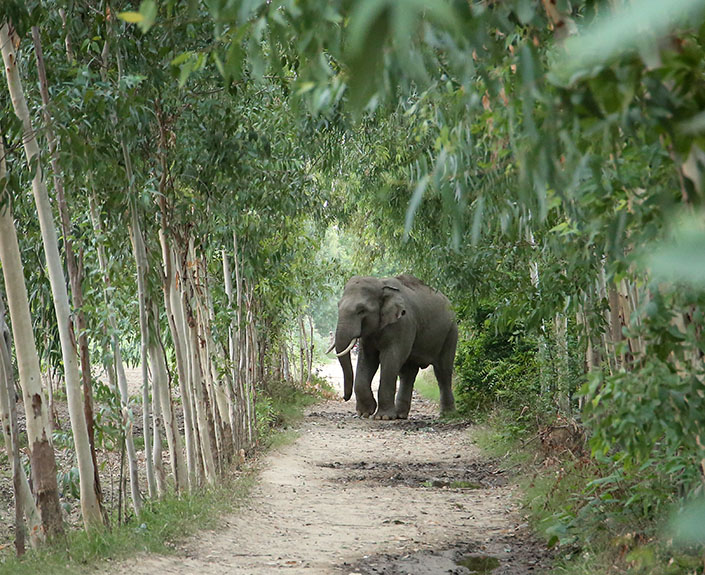
Human-Elephant Conflict Mitigation
Mitigate conflict with wild elephant herds and provide education in the Chhattisgarh region of India.
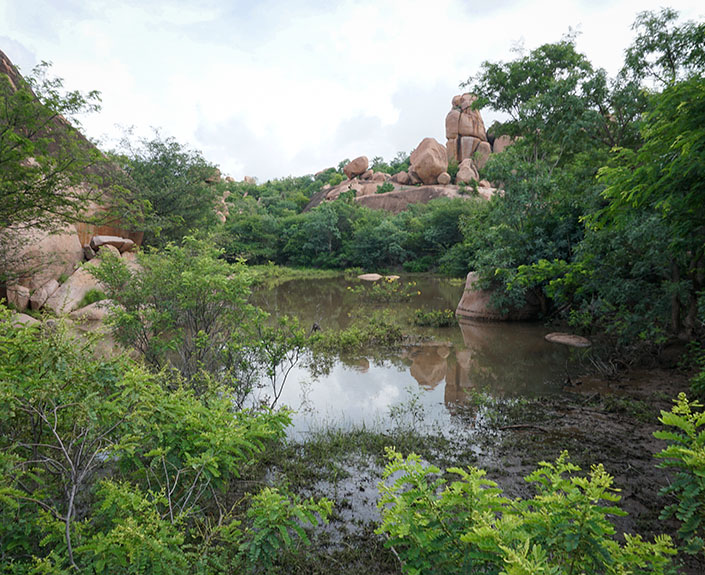
Habitat Conservation
This conservation project aims to protect precious sloth bear habitat near the Ramdurga Valley in Koppal, Karnataka, India.
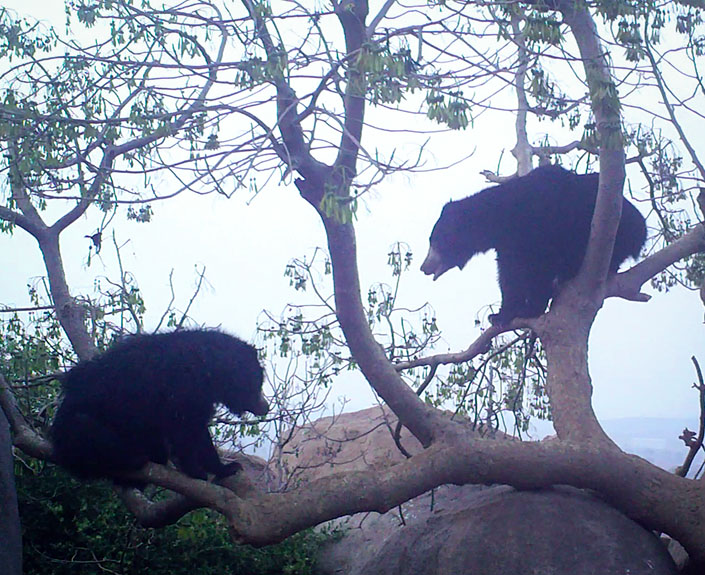
Research & Conservation
Wildlife SOS recognises that human caring and understanding is crucial to saving wild animals and protecting the habitats.

